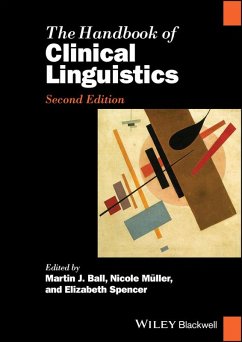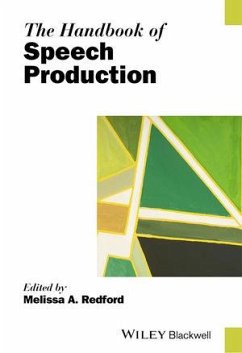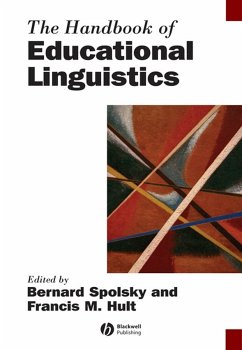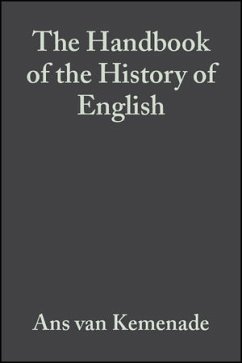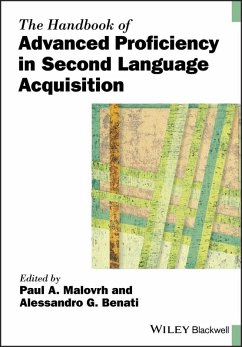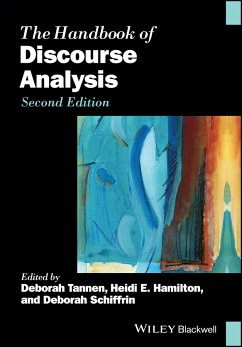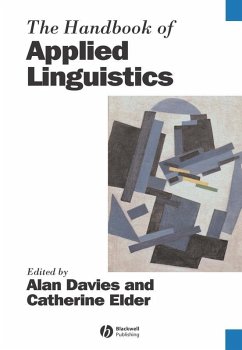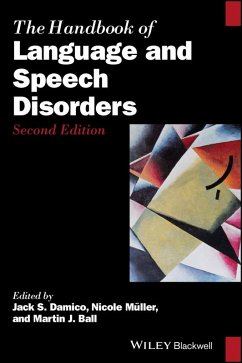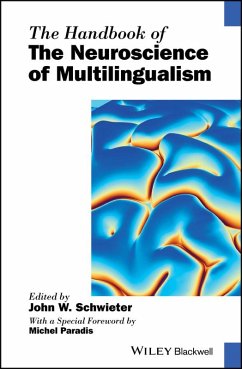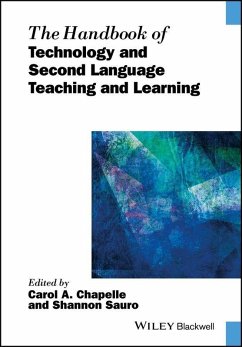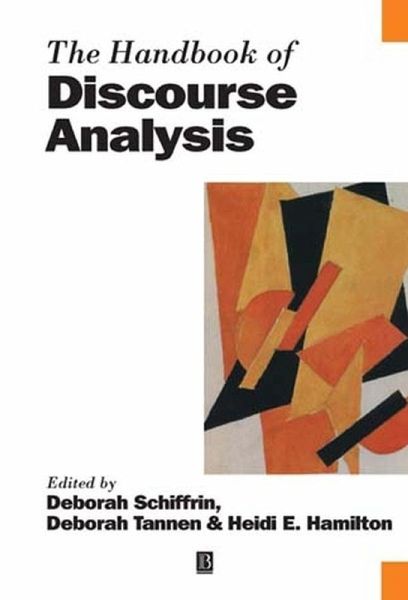
The Handbook of Discourse Analysis (eBook, PDF)

PAYBACK Punkte
0 °P sammeln!
The Handbook of Discourse Analysis makes significant contributions to current research and serves as a comprehensive and authoritative guide to the central issues in contemporary discourse analysis. * Features comprehensive coverage of contemporary discourse analysis. * Offers an overview of how different disciplines approach the analysis of discourse. * Provides analysis of a wide range of data, including political speeches, everyday conversation, and literary texts. * Includes a varied range of theoretical models, such as relevance theory and systemic-functional linguistics; and methodology,...
The Handbook of Discourse Analysis makes significant contributions to current research and serves as a comprehensive and authoritative guide to the central issues in contemporary discourse analysis. * Features comprehensive coverage of contemporary discourse analysis. * Offers an overview of how different disciplines approach the analysis of discourse. * Provides analysis of a wide range of data, including political speeches, everyday conversation, and literary texts. * Includes a varied range of theoretical models, such as relevance theory and systemic-functional linguistics; and methodology, including interpretive, statistical, and formal methodsFeatures comprehensive coverage of contemporary discourse analysis.
Dieser Download kann aus rechtlichen Gründen nur mit Rechnungsadresse in D ausgeliefert werden.



